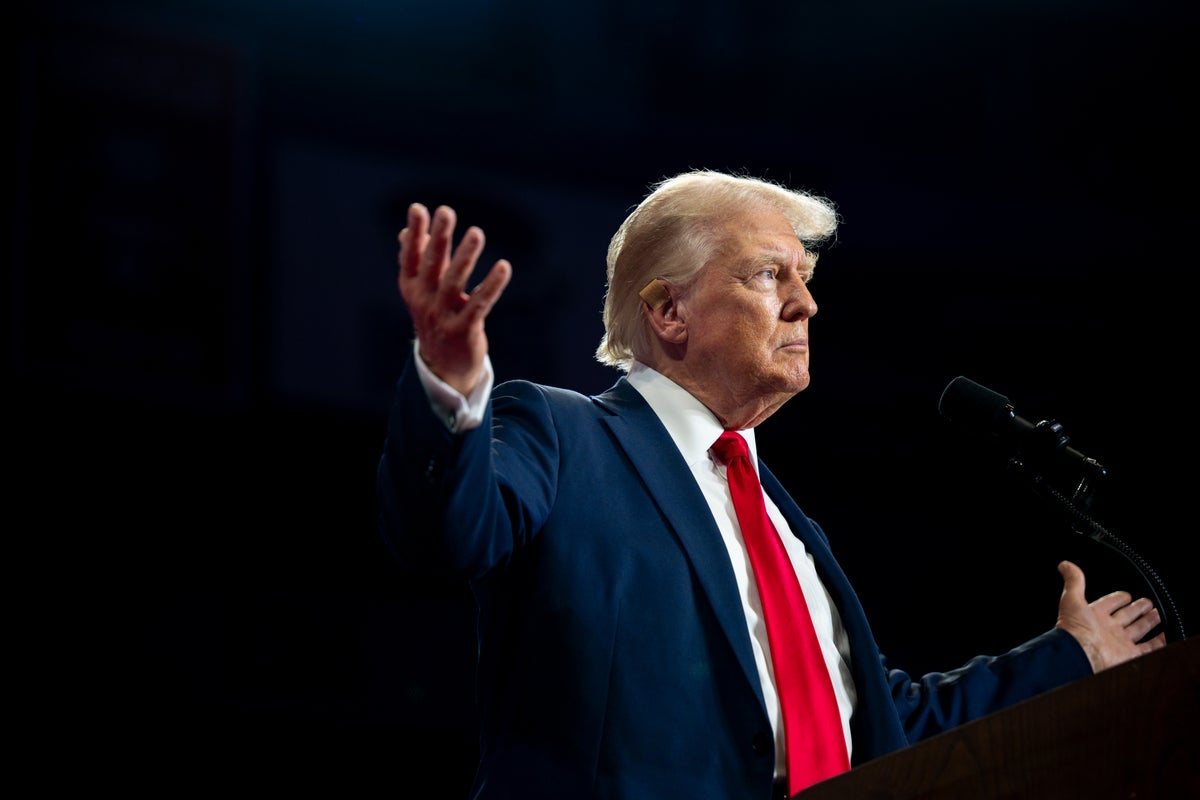
Support truly
independent journalism
Manhattan prosecutors are urging the judge overseeing Donald Trump’s criminal hush money trial to keep a 34-count verdict in place after the former president argued that the case should be tossed after the Supreme Court’s ruling on presidential “immunity.”
Prosecutors with Manhattan District Attorney Alvin Bragg’s office argue that nothing about the case involves “official” presidential acts that the Supreme Court’s conservative majority has argued are “absolutely” immune from prosecution.
A jury found Trump guilty of illegally covering up payments to his former attorney Michael Cohen, who paid off adult film star Stormy Daniels to prevent her from publicly sharing her story about having sex with Trump in 2006.
Trump was convicted on 34 felony counts of falsifying business records.
Hours after the Supreme Court’s ruling on July 1, Trump’s attorneys argued that the case should be thrown out and the verdict overturned because certain evidence used to convict him should have been off limits to prosecutors.
Prosecutors argue that the case involves “wholly unofficial conduct or, at most, official conduct for which any presumption of immunity has been rebutted.”
But even if the Supreme Court’s ruling excluded that evidence, “there would still need be no basis for disturbing the verdict because of the other overwhelming evidence of defendant’s guilt,” prosecutors wrote on Thursday.
“The evidence that he claims is affected by the Supreme Court’s ruling constitutes only a sliver of the mountains of testimony and documentary proof that the jury considered in finding him guilty of all 34 felony charges beyond a reasonable doubt,” they added. “Under these circumstances, there is no basis for disturbing the jury’s verdict, and defendant’s motion should be denied.”
Trump has argued that “impermissible” evidence includes Trump’s conversations with White House aides who testified at the trial, phone records from his time in office, and posts on Twitter, which was “recognized as a formal channel of White House communication in the Trump Administration,” according to Trump’s attorney Todd Blanche.
Prosecutors said the Supreme Court’s decision has no bearing on the hush money case “because, as defendant does not dispute, the charges in this case all involve purely personal conduct, rather than official presidential acts.”
Four of Trump’s tweets targeting Cohen, for example, were “all issued in defendant’s unofficial capacity,” prosecutors wrote.
“The challenged Tweets bear no resemblance to the kinds of public comments that the Supreme Court indicated would qualify as official presidential conduct,” according to prosecutors.
Testimony from former White House communications director Hope Hicks also doesn’t apply to the “immunity” ruling, because “the only testimony elicited by the People concerned discussions between defendant and Hicks about the hush-money scheme that was then being reported in the press,” according to prosecutors, adding that “there is no danger that consideration of this testimony would interfere with the authority and functions of the Executive Branch.”
Additional testimony from another White House aide, Madeleine Westerhout, was merely “general descriptions” about Trump’s “private affairs” — none of which had “anything to do” with official acts as president.
Prosecutors also argued that an Office of Government Ethics form that was admitted into evidence is a “quintessential” public record that is not subject to presidential “immunity.”
Even if the trial admitted evidence that could be considered off-limits, “harmless error cannot be a basis for setting aside a verdict,” according to prosecutors.
“Defendant is wrong to claim that the Supreme Court’s recent ruling compels the conclusion that any admission of purportedly official acts is automatically prejudicial,” they added.
Trump’s challenge is a long shot, but “it’s definitely not frivolous,” former Manhattan prosecutor Karen Agnifilo told The Independent.
“The Supreme Court has really gutted a lot of the charges against him throughout the various cases, but this particular case is probably the safest,” she said.
While some of the evidence could be considered “at risk,” the verdict is likely to stay intact, Agnifilo said.
As a result of Trump’s motions, Judge Merchan postponed Trump’s sentencing date by two months to September 18 — “if such is still necessary,” he wrote earlier this month.
The judge will issue a decision on Trump’s arguments on September 6.







